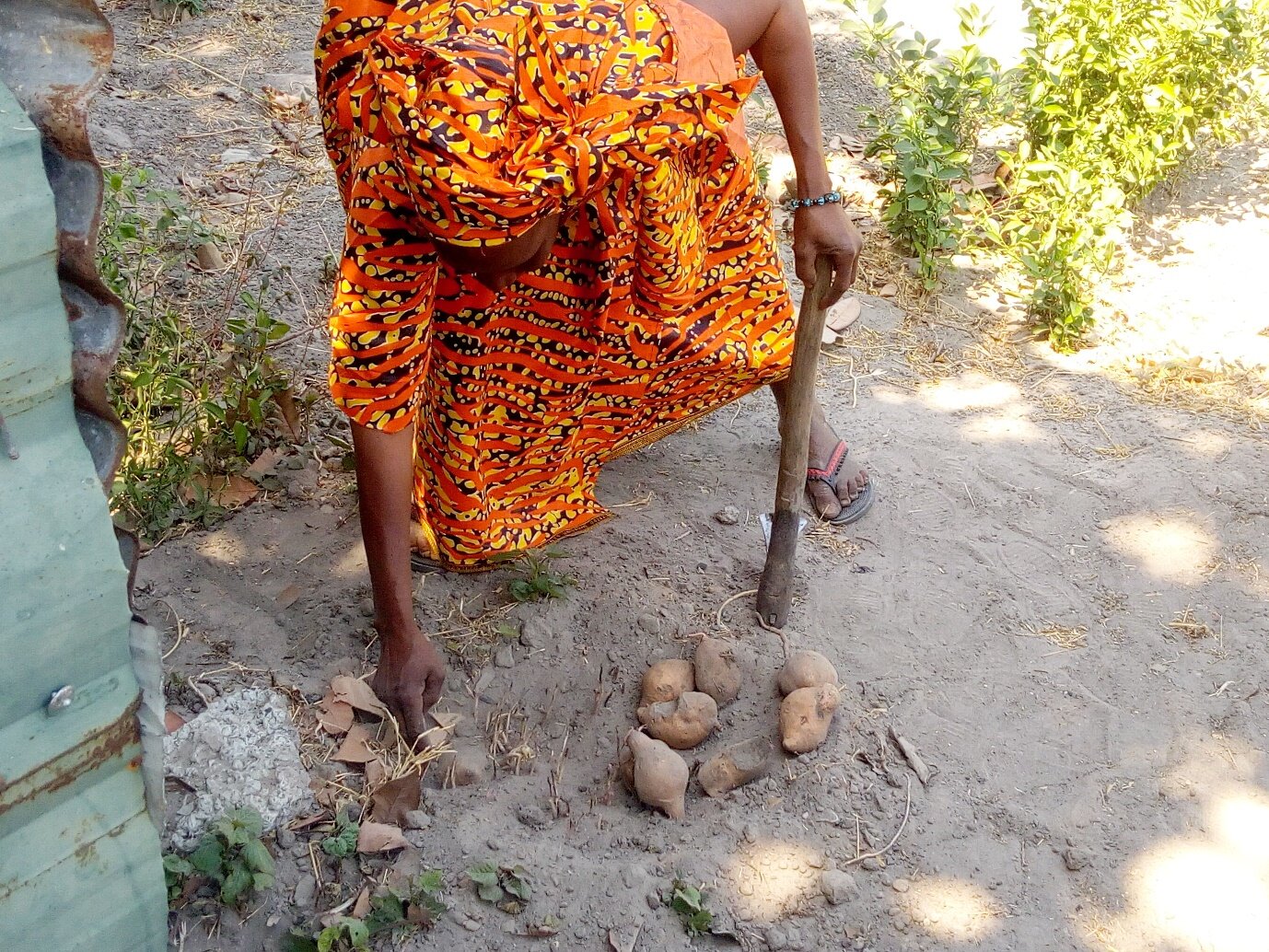Meet 45-year-old Tunko. A mother and farmer who depends on growing crops to earn a living, she is just one of the thousands of women whose life has improved as a result of our nutrition project in The Gambia.
Our project has increased the amount of orange-fleshed sweet potatoes grown in gardens. Rich in Vitamin A, these potatoes play a crucial role in the mental and physical development of young children and women of childbearing age. Growing these healthy and nutritious potatoes has not only helped to reduce hunger, but it has also proved a vital source of income for female farmers like Tunko.
“I eat sweet potato puree every day with my family and I don’t experience hunger during work,” Tunko says. “[The sweet potatoes] earn me money, which is empowering me to take care of my kids in school.”
The enormous benefits Tunko has reaped from growing orange flesh sweet potatoes has motivated her to raise awareness about them and encourage others to eat them too. Her village is renowned for producing great quantities of these sweet potatoes and for distributing vines to other villages, causing a ripple effect in the region.
Context:
The EU funded project ‘Reducing micronutrient deficiency of women and children through sustainable and integrated approaches to food fortification’ began in 2017 and has been instrumental in increasing crop production and a variety of biofortified foods for farmers and households alike. With significant impacts on nutrition, value chain addition and market interaction, this project is contributing to the increased consumption of fortified foods across The Gambia.

